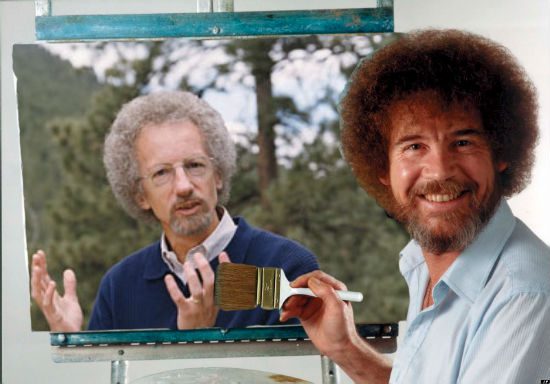Best-selling evangelical author and long-time Christianity Today columnist Philip Yancey, speaking in Madrid, responds to Spanish Christians asking about the American presidential election:
This reminds me of the earlier statement from another best-selling Christian author, Max Lucado, who denounced Donald Trump back in February. Both Yancey and Lucado are respected writers of many books beloved by white evangelicals. Both are also not known for having much of anything to say about politics — tending to focus mainly on pastoral concerns and personal spirituality. Both men also critique Trump from a similar perspective of traditional white evangelical piety — focusing on the candidate’s history of divorce, infidelity, gambling, and coarse bullying without much acknowledging his long history of racism and bigotry.
I’m not sure Lucado’s statement had much effect even among his biggest white evangelical fans. I suspect Yancey’s words will be similarly inconsequential. The 9-in-10 white evangelicals supporting Trump probably won’t consider the substance of Yancey’s argument — they’ll simply register that he’s turned against their anointed one, and consign him to the very long list of voices they no longer need to heed. (Yancey has already had to publicly reassure white evangelical gatekeepers that he was by no means endorsing Hillary Clinton or any other baby-killing Democrat,
You should really watch that video to see Yancey’s evident bewilderment — how difficult it is for him to comprehend what’s going on with his fellow white evangelicals, and how much this whole Trump phenomenon pains him. Here’s a rough transcript of his comments:
I am staggered that so many conservative or evangelical Christians would see a man who is a bully, who made his money by casinos, who has had several wives and several affairs, that they would somehow paint him as a hero, as someone that we could stand behind. I’ll just say it out loud: I cannot understand how evangel … I can understand, well, maybe you choose these policies that you support, OK, I understand that. But to choose a person who stands against everything that Christianity believes as the hero, the representative, one that we get behind enthusiastically is not something I understand at all.
And frankly, I think the church in the United States, the more it embeds with politics, the more it shall we say hitches a ride with politics, Europeans understand where that goes. The church and the state are seen like this [clasps hands together] and the state proves what it is, which is a flawed, sometimes corrupt, system, then the church is judged by that and rejected in the same way [as] the state. There are countries in Europe where, as you know, the church is set back for decades and decades because they have been stained by the way they sold their soul for power, I would say.
As the United States grows more and more “secular,” I tell the people there, I tell my people, we are becoming more like the fertile soil in which the early church did best, like the Roman Empire. This was a pagan, hostile society, and yet Christians stood out by being different. When you’re in a place like the United States or Europe in its recent past where the majority would claim to be Christians, but they don’t look — they look like everybody else — then people don’t understand what the gospel is. If they look radically different from the world around them, people can see that difference.
That last paragraph is interesting. I think his first-century analogy gets a bit garbled, but Yancey grasps an important point: [White] Christian nationalism and [white] Christian hegemony have created the idea that [white] Christianity is normal and normative here in our culture. And the result of that is that Christians “look like everybody else” — indistinct and indistinguishable.
Yancey realizes that’s not how things are supposed to be. He wants Christians to “look radically different from the world around them.” That’s good! But Yancey’s attempt to imagine what this radical difference might look like is itself shaped by that same homogenized hegemony of white Christianity. That circumscribes his attempts to describe “everything that Christianity believes” — leaving him able only to list things like being anti-gambling and anti-adultery.
Somehow such lists of the things that are supposed to make evangelical Christians “radically different” always wind up making evangelical Christianity sound like a less-demanding form of Mormonism.
I want to return to all this to explore how Yancey’s weirdly optimistic variation of the white evangelical narrative of decline is itself the explanation for the white evangelical Trump-worship that so confuses and disappoints him. But let’s save that for later.
Here let’s just note that Philip Yancey — author of The Jesus I Never Knew and of What’s So Amazing About Grace? and of dozens of other titles that line the shelves of white evangelical pastor’s all across America — has publicly reminded his readers that they’re about to go vote for a man who “stands against everything that Christianity believes.” And good for him for doing so.













